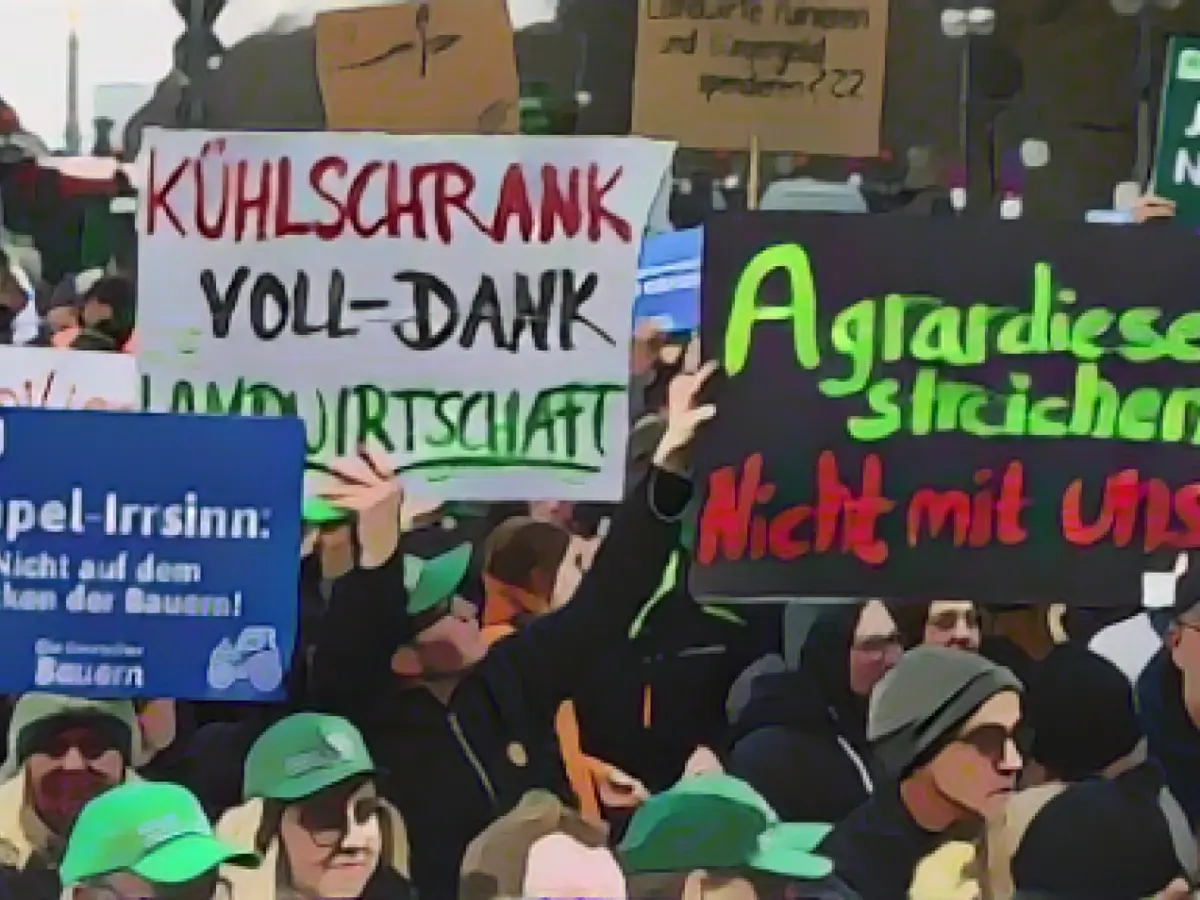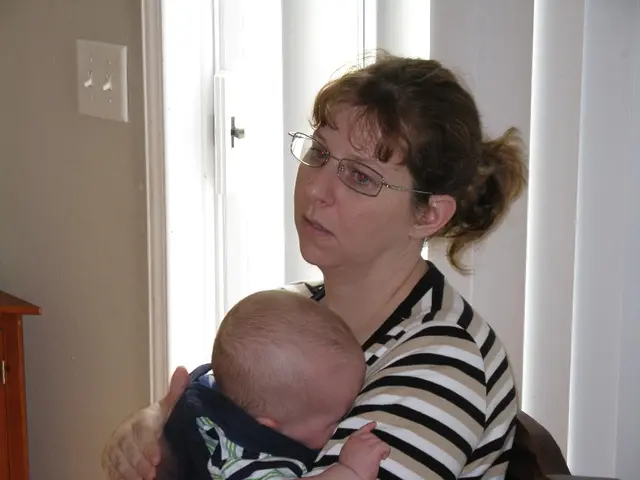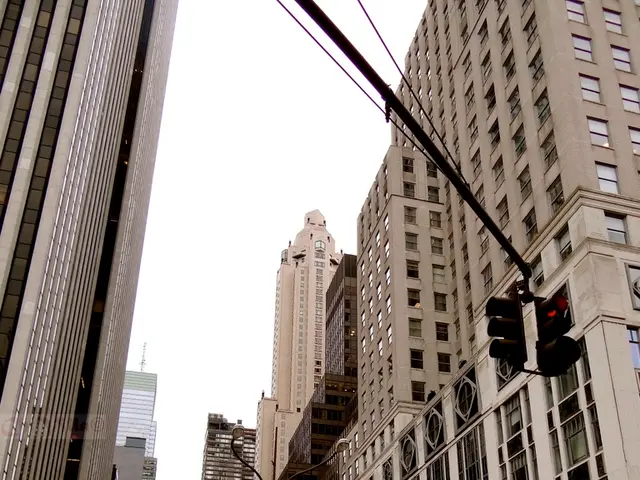Farmers Rally Against Austerity Measures - Özdemir Fights Back
Minister Özdemir, the agriculture chief, squared off against the government's austerity plans during a passionate rally at the Brandenburg Gate. "I'm making my stance clear in the cabinet," he declared. "We can't let this happen at such a severe cost to our sector." The mounting pressures and existential fears in the farming community were already enormous, Özdemir lamented.
The minister's speech was frequently disrupted by loud whistles, boos, and the clanging of cowbells from the demonstrators. Their unrelenting chants for new elections held steady, while Farmers' Union President Rukwied called on the "traffic light" coalition to reconsider their policies. If this did not occur, Rukwied suggested it might be time for a change in government leadership. He accused Finance Minister Lindner (FDP) of breaking his word regarding tax increases.
The proposed elimination of subsidies and exemptions for agricultural and forestry machinery taxes is part of the federal government's budget consolidation efforts, as dictated by the Federal Constitutional Court. On short notice, the German Farmers' Association convened the assembly in Berlin. The gathering of tractors had begun Sunday evening and continued through the following days, with up to 1700 tractors parking on the Straße des 17th, a police estimate suggested. The Farmers' Union ascertained the participation of 3000 tractors and 8000 to 10,000 demonstrators.
Government spokesperson Hebestreit acknowledged the farmers' distress and sympathized with their plight. He believed the budget reductions and cost-cutting measures in various sectors, including agriculture, would be difficult but necessary. Hebestreit expressed understanding for the farmers' protests.
Greenpeace, however, wholeheartedly supports the "traffic light" coalition's austerity plans. Agricultural expert Hofstetter contended that subsidizing agricultural diesel was expensive, detrimental to the environment, and should be eliminated. In light of agriculture's billions in subsidies, Hofstetter considered the proposed diesel subsidy termination entirely justifiable.
In response, the CDU, Germany's conservative party, sided with the farmers. General Secretary Carsten Linnemann expressed unfavorable sentiments toward the "traffic light" government's treatment of farmers. Linnemann warned that barring the cuts to agricultural diesel, more farms were at risk of collapse. He implored to withdraw the cuts.
You Might Also Be Interested In:
Underlying Reasons and Consequences of the Protest
The farmers' showdown in Germany is primarily centered around agricultural policies and environmental considerations. Key factors contributing to the demonstration involve:
- Lack of agriculture focus in election campaigns
- Concerns over climate change and environmental protection
- Desire for fair prices and business support in the agricultural sector
- Foot-and-mouth disease outbreak near Berlin
The aftermath of the assembly has led to increased awareness and mobilization from the farmers, who remain steadfast in their quest for more sustainable agricultural policies and environmental preservation. A critical meeting with outgoing Agriculture Minister Cem Özdemir and his State Secretary Ophelia Nick allowed farmers to voice their demands for a farming sector that safeguards the climate, animals, and the environment.
Involvement in the demonstrations from key figures like trade unionist Harald Schaum, who stressed the need for corporations' profits to benefit farmers' wages and prices, as well as farmer Marlene Herzog, who insisted on a better world for future generations, further highlight the importance of this movement.
The farmers' protests in Germany underscore the far-reaching impacts of economic policies on rural communities and the environment. The resolve of the Farmers' Union and involvement of influential figures like Özdemir show the ongoing pursuit of sustainable agricultural practices and a better future for farmers and their communities.




